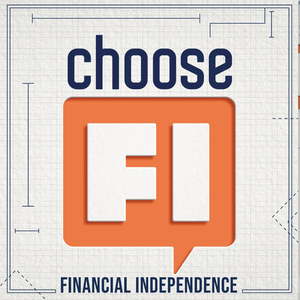Episode Summary
Auditing your expenses can dramatically improve financial awareness, helping you identify money leaks and understand your true living costs. In this episode, the hosts present a structured four-step framework aimed at facilitating regular expense audits, which ideally should be conducted annually. The discussion includes practical strategies for tracking subscriptions, variable expenses, and distinguishing between required and discretionary spending.
By adopting a calculated approach to expenses, you can effectively mitigate lifestyle creep while ensuring every dollar serves a purpose.
Key Tactical Takeaways
Conduct an Annual Expense Audit: Establish a routine to review expenses at least once a year to stay on top of spending habits and identify areas for improvement.
Categorize Every Expense: Break down expenditures into necessary (fixed costs) and discretionary (variable costs) categories for clearer insights.
Use a Value Matrix: Assess expenses based on their joy and necessity to inform which should be retained, reduced, or eliminated.
Track Subscriptions and Variable Costs: Pay attention to recurring payments, particularly those related to entertainment and services like streaming or software.
Calculate the Long-Term Impact of Small Savings: Remember that cutting small monthly expenses can significantly affect your financial independence number over time.
Core Rules & Formulas
Rule Explanation Annual Expense Audit Review all expenses once a year to prevent overspending and identify leaks. Categorization of Expenses Differentiate between Required (fixed) and Discretionary (variable) expenses. Value Matrix Implementation Organize spending into High Joy/ Low Joy and Essential/ Eliminate quadrants. Prioritize Necessary Expenses Always account for essential bills, including utilities, groceries, and housing costs. Evaluate Impact of Expenses Each $100 cut from monthly expenses reduces your FI number by $30,000 and if invested can generate $60,000 over time (20-year horizon).
Tools, Accounts, or Strategies Mentioned
Tool/Strategy Link/Description Expense Audit Spreadsheet Download here Value Matrix Framework Framework for analyzing the necessity and joy of expenses.
Resources & References
ChooseFI Episode 009: Travel Rewards Framework
Expense Audit Spreadsheet: Download
What To Do Next
Join the Expense Audit Challenge: Participate in the community challenge to gain insights and support while auditing your finances.
Download Your Bank and Credit Card Statements: Begin your audit by gathering statements from the last few months.
Categorize Your Expenses: Use the expense audit spreadsheet to identify necessary vs. discretionary spending.
Reflect on Your Findings: After auditing, identify any hidden expenses or subscriptions that can be cut, and share insights with the community at choosefi.com/login.
Conducting an Effective Expense Audit: A Step-by-Step Guide
Understanding the Expense Audit
Definition: An expense audit is a systematic review of your expenditures to identify unnecessary spending and money leaks.
Goal: The aim is to clarify how much your life actually costs.
Importance of Regular Expense Audits
Frequency: Conduct an expense audit at least once a year to keep track of spending habits.
Long-term Tracking: Monitor for lifestyle creep, which can happen gradually and affect your financial health over time.
Action Steps to Begin Your Expense Audit
Gather Financial Data: Download your recent bank and credit card statements (last 3 to 4 months).
Check statements for variances and patterns in spending.
Categorize Your Expenses: Separate them into categories such as housing, transportation, food, entertainment, and miscellaneous.
Include all necessary and discretionary expenditures.
Identifying Money Leaks
Subscription Services: Track all recurring subscriptions and evaluate their necessity.
Variable vs. Fixed Expenses: Distinguish between fixed permissible expenses (mortgage, insurance) and variable spendings (dining out, entertainment) to identify areas for improvement.
Implementing a Value Matrix
Categorization: Create a value matrix to differentiate between: High Joy (essential to happiness)
Low Joy (non-essential)
Essential (required for daily living)
Eliminate (unnecessary expenses)
Analyze Each Category: Assess each item in terms of value and joy to decide if it should remain in your budget.


